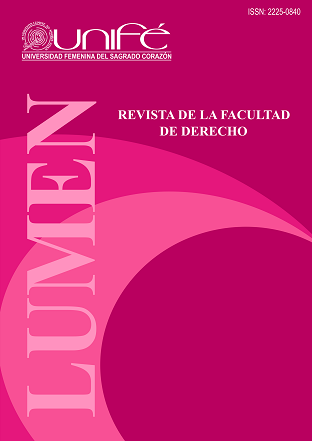Food between cohabitants: from natural duty to constitutional duty. A different reading
DOI:
https://doi.org/10.33539/lumen.2018.v14n2.1224Keywords:
Food, cohabitants, duties, family, de facto couplesAbstract
In this article the author develops the regulation that corresponds to the "food" among the cohabitants and the inconsistencies reflected in our legal system. He argues that neither the constituent of 1979 nor the legislator of our civil law of 1984 wanted to recognize a full family status for unmarried couples and that this is absurd given that the granting of a patrimonial regime did not fall into a vacuum nor was it consecrated for an entelechy or an ethereal being: it was conceived for an unmarried couple that was (and is) openly a family, most of the times integrated by the concubines and by their descendants. It raises an interesting question that will be outlined in the present article, which is the following: how did this restriction of the normative regime affect de facto unions?









